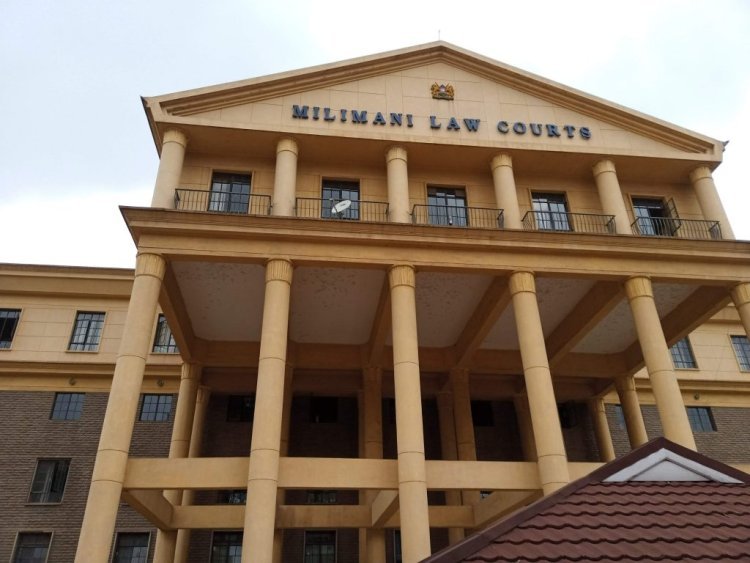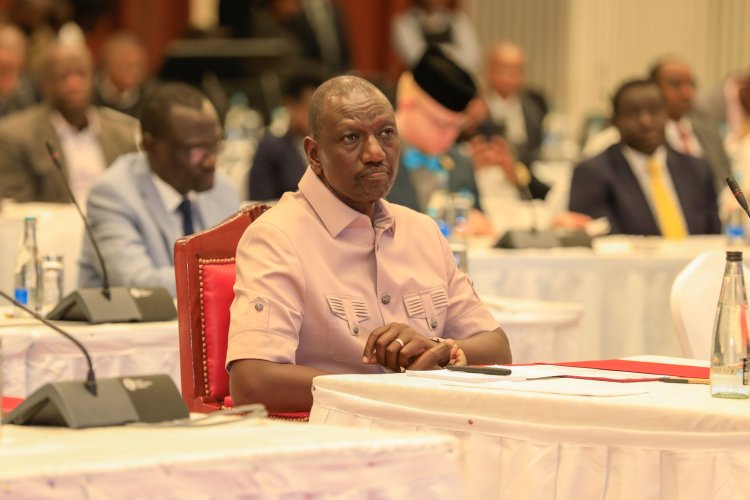How High Court Ruled On Two Ruto Laws Hours Apart
Before the country could catch its breath, the High Court had again ruled against Ruto's other law

In a matter of hours, the High Court has ruled against two of President William Ruto's key laws, striking a massive blow to his efforts to ensure he delivers on his pre-election campaigns.
On Monday, November 27, the High Court suspended the planned implementation of the Social Health Insurance Act 2023 and other related Acts by the Ministry of Health, a month after the Head of State signed three bills on the same.
The Act which includes the following bills: The Social Health Insurance, Primary Health Care Act, and the Digital and Digital Health Act, was suspended until February 7, 2024.
"A conservatory order is hereby issued restraining the respondents (President William Ruto, CSs in the Ministry of Health and Information, the Attorney General, Commission for Revenue Collection, The National Assembly and the Senate), their agents and or anyone acting on their directives from implementing and or enforcing The Social Health Insurance Act,2023; The Primary Health Care Act, 2023 and the Digital Health Act,2023 until February 7, 2024," Justice Chacha Mwita ordered.

President William Ruto during the two-day National Executive Retreat at the Edge Convention Centre, South C, Nairobi on November 16, 2023 /PCS
The court temporarily barred the state from effecting the three new funds gazetted by Health Cabinet Secretary (CS) Susan Nakhumicha pending the determination of a case lodged in court by activist Joseph Enock.
Enock had, through his lawyer, Harrison Kinyanjui, argued that the Social Health Insurance Act 2023 is unconstitutional since the Executive usurped the role of the Parliament when enacting the new law.
The Social Health Insurance Act had carried the most significance since this is the one that abolished the National Health Insurance Fund (NHIF) officially for the first time since 1966.
By revoking NHIF and replacing it, President Ruto had sought to attain Universal Health Coverage (UHC) as set out within his plan for a healthier nation espoused under the Bottom Up Economic Transformation Agenda (BETA).
In place of NHIF, Ruto created three funds namely Primary Health Care Fund, Social Health Insurance Fund, and Chronic Illness and Emergency Fund. The Social Health Bill was to enable all Kenyans to access quality care, regardless of their financial status. Kenyans employed in the formal sector were to make a monthly contribution of 2.75 per cent of their salary capped at a minimum of Ksh300 and a maximum of Ksh5,000.
Housing Levy
Before the country could catch its breath, the High Court had again ruled against Ruto's other law, declaring on Tuesday, November 28 that the Housing Levy introduced in the Finance Act was unconstitutional.
It ruled that the Finance Act 2023 amendment to Section 84 of the Finance Act amending the Employment Act introducing the Housing Levy is unconstitutional, adding that the levy had lacked a comprehensive legal framework and is irrational.
"The levy against persons in formal employment to the exclusion of other non-formal income earners without justification is discriminatory, irrational, arbitrary and against the constitution," Justice David Majanja ruled.
"We find hold that the enactment of housing levy must be supported with a rational explanation. We also find that the government failed to provide an explanation for the imposition of the levy. Further, the imposition of the levy on salaried employees and not those in informal employment is discriminatory and therefore, unconstitutional."
Among the issues for determination was the constitutionality of the Housing Levy which was set at 1.5% of the gross monthly salary matched by 1.5% by the employer.
The judges ruled that there was no legal mechanism anchoring the housing levy. For instance, how will members know who the beneficiaries are? It does not meet the good governance test.
The court also found that the housing levy was opaque in the absence of a legal framework to support the levy.
Immediately after the ruling, State attorneys asked the High Court for an order to prevent Kenyans from demanding Housing Levy refunds.
Nairobi Senator, Edwin Sifuna, one of the first politicians to react to the ruling, stated "On Housing Levy, you should wait till the matter clears the entire hierarchy of Courts to celebrate. Mimi ndio nawashow. (I’m telling you)."


 admin
admin 




